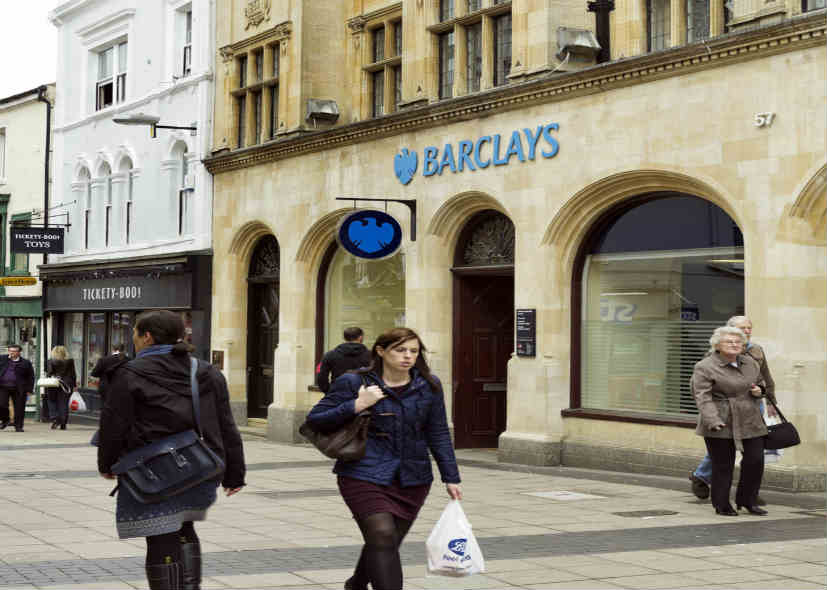Barclays Bank PLC has been charged by The Serious Fraud Office (SFO) over a $3 billion loan that the bank raised from Qatar back in 2008.
In 2008, to evade a government bailout, Barclays took a £12 billion loan from Qatar state-owned Qatar Holdings.
It is the second time that SFO has charged Barclays for ‘unlawful financial assistance’. In June 2017, Barclays was charged with similar charges.
The same charges were brought against Barclays PLC in June last year.
If Barclays and its previous employees associated with the issue are proven guilty of the accused crime, the punishment can be 10 years of imprisonment and a penalty. The bank will also bear the risk of losing its banking licence in the UK and other countries.
However, Barclays defied the charges and stated: “Barclays PLC and Barclays Bank PLC intend to defend the respective charges brought against them.
“Barclays does not expect there to be an impact on its ability to serve its customers and clients as a consequence of the charge having been brought.”
Philip Marshall QC at Serle Court Chambers said: “The SFO may have to establish the precise intention of the directors when making the loan which is the subject of the investigation and it might be difficult to prove to a criminal standard that they had an unlawful intention.”
City Index, a provider of spread betting, FX and CFD Trading based in the UK, believes that consequences were always going to be costlier for Europe’s worst-performing bank stock than the Serious Fraud Office’s charges.
City Index shared further insight and said:
Holding and operating
The latest development is that the SFO, Britain’s main corruption investigator, has extended a charge it levelled against one Barclays corporate entity against another. Having charged Barclays Plc., the group’s holding company last June with providing unlawful financial assistance to Qatari investors, the SFO on Monday charged Barclays Bank Plc., the group’s operating company, with the same offence. The move looks to be motivated by the fact that it is Barclays’ operating company that is licensed for banking operations. Any conviction could therefore bring regulatory action.
Shares shrug
For now, the stock price reaction to the news—a slight rise—shows investors do not think it makes the potential negative impact from the case much worse. Still, the negativity was already substantial and potentially damaging for the £33bn lender. As well as the corporate charges, four senior former executives have also been charged with conspiracy to commit fraud by false representation whilst arranging a capital injection from Qatar. The individuals, former CEO John Varley along with Roger Jenkins, Thomas Kalaris and Richard Boath, could ultimately be jailed. Barclays itself faces a multimillion pound fine like those agreed by the SFO with Tesco and Rolls-Royce last year. It’s worth making clear that the charge of conspiracy to commit fraud by false representation against Barclays Plc. and the four former execs has not been made against the operating company, Barclays Bank Plc.
Fallout
Outside of the case itself, even before main hearings begin in January 2019, negative effects abound. The Qatar issue helps explain, together with other conduct questions, why Barclays’ shares have sharply underperformed European rivals over a year, drifting 15% lower. For one thing, the time senior managers, including CEO Jes Staley, must devote to the case is less time they can devote to right-sizing the core franchise. Elsewhere, civil cases on the back of the SFO’s have sprung, up, including a $1bn suit. Furthermore, one of the individual defendants has accused Barclays of unfair dismissal, whilst the SEC, U.S. Dept. of Justice, and the FCA are also investigating. This means separate damages and penalties are possible. And there’s enough legal meat here to keep the reputational hits to Barclays going for years.
Still live
To be sure, the Barclays that had to raise an emergency £11.5bn from international investors in 2008, including Qatar, is not the same Barclays as today. Nor are any of the key protagonists from then still in place. But the Qatar case remains live. Even if Barclays’ frail investment bank finds enough traction to generate growth and market share this year (unlikely), the SFO’s prosecution will remain a major reason to look elsewhere among Europe’s recuperating banks.

